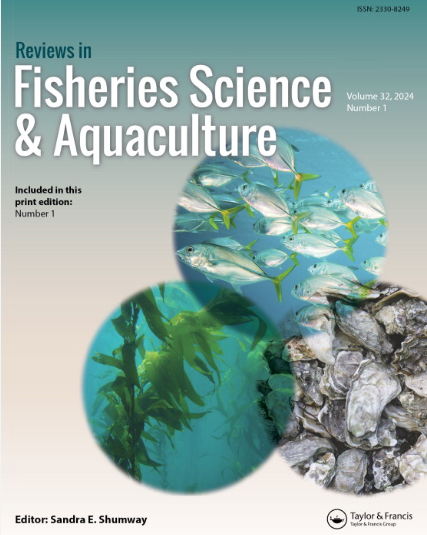非洲水产养殖:遗传资源和传统知识获取及惠益分享措施
IF 5.3
1区 农林科学
Q1 FISHERIES
引用次数: 2
摘要
遗传资源是水产养殖育种计划、生物技术和保护的基石。《生物多样性公约》和《名古屋议定书》是获取和惠益分享(ABS)的国际框架,涉及:(a)遗传资源和相关传统知识的收集和利用;以及(b)与提供商分享其使用的好处。非洲国家的ABS法律越来越多地适用于整个水产养殖生产链中使用的资源和知识,包括基因和基因序列。本文回顾了肯尼亚、马拉维、坦桑尼亚、乌干达和赞比亚(拥有ABS法律的主要水产养殖国家)的ABS立法和同行评议出版物,以确定ABS和水产养殖方面的关键知识空白。通过系统的定量文献回顾方法和定性分析,主要发现是,尽管在许多被审查的国家建立了ABS法律,但没有分析这些法律对遗传资源的保护、可持续利用、与水产养殖相关的数字序列信息和传统知识以及公平分享利用这些法律带来的惠益的积极或消极影响。这些知识差距可能严重破坏非洲生态可持续水产养殖发展所必需的资源和知识共享,而这对粮食安全和生计至关重要。本文章由计算机程序翻译,如有差异,请以英文原文为准。
African Aquaculture: Genetic Resource and Traditional Knowledge Access and Benefit Sharing Measures
Abstract Genetic resources are the building blocks for aquaculture breeding programs, biotechnology and conservation. The Convention on Biological Diversity and the Nagoya Protocol are international frameworks for access and benefit sharing (ABS) concerning: (a) the collection and use of genetic resources and associated traditional knowledge; and (b) sharing the benefits of their use with the provider. ABS laws in African countries increasingly apply to resources and knowledge used throughout the production chain for aquaculture, including genes and gene sequences. This paper reviews ABS legislation and peer-reviewed publications in Kenya, Malawi, Tanzania, Uganda and Zambia (leading aquaculture countries with ABS laws) to identify key knowledge gaps for ABS and aquaculture. Using a systematic quantitative literature review method and a qualitative analysis, the main findings are that despite established ABS laws in many of the reviewed countries, there are no analyses on the positive or negative effects of these laws for the conservation, sustainable use of genetic resources, digital sequence information and traditional knowledge relevant to aquaculture and the equitable sharing of benefits from their use. These knowledge gaps may significantly undermine the sharing of resources and knowledge necessary for ecologically sustainable aquaculture development in Africa, which is crucial to food security and livelihoods.
求助全文
通过发布文献求助,成功后即可免费获取论文全文。
去求助
来源期刊

Reviews in Fisheries Science & Aquaculture
FISHERIES-
CiteScore
25.20
自引率
0.90%
发文量
19
期刊介绍:
Reviews in Fisheries Science & Aquaculture provides an important forum for the publication of up-to-date reviews covering a broad range of subject areas including management, aquaculture, taxonomy, behavior, stock identification, genetics, nutrition, and physiology. Issues concerning finfish and aquatic invertebrates prized for their economic or recreational importance, their value as indicators of environmental health, or their natural beauty are addressed. An important resource that keeps you apprised of the latest changes in the field, each issue of Reviews in Fisheries Science & Aquaculture presents useful information to fisheries and aquaculture scientists in academia, state and federal natural resources agencies, and the private sector.
 求助内容:
求助内容: 应助结果提醒方式:
应助结果提醒方式:


